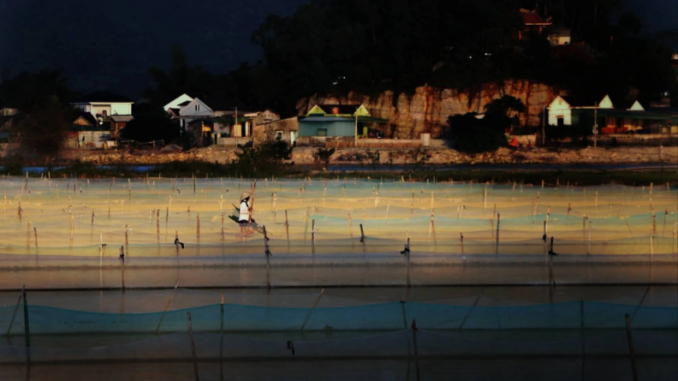
The fields are staked, surrounded by nets ready for a season of worms, and the clam worm”earth dragon” is sold for half a million dong (20$)/kg.
Located near the end of the Lam river, Chau Nhan commune, Hung Nguyen district, Nghe An is blessed by nature with fields that “grow” Clam Worm. In the past, during the season, people used to use baskets and nets to pick up Clam Worm to process or sell in rural markets.
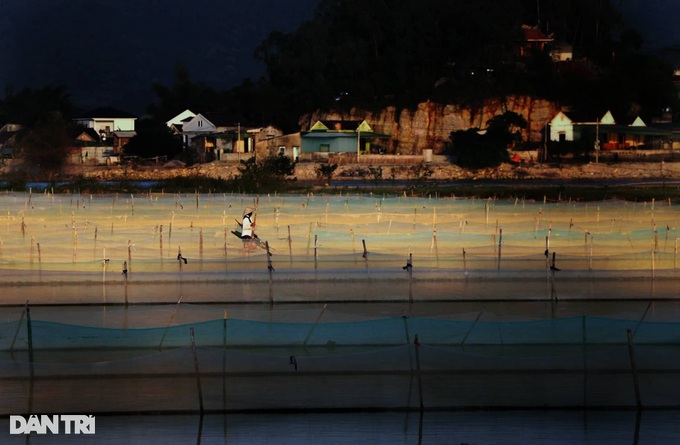
Since this mollusk has become a specialty, it has become a commodity of high economic value. Therefore, the harvesting of worms is no longer spontaneous as before, but more calculated and invested.

Where harvested, traders and owners of specialty restaurants will weigh in and buy in the field. However, the price will depend on the market, sometimes up to nearly 500,000 VND/kg but sometimes down to about 380,000 VND/kg.
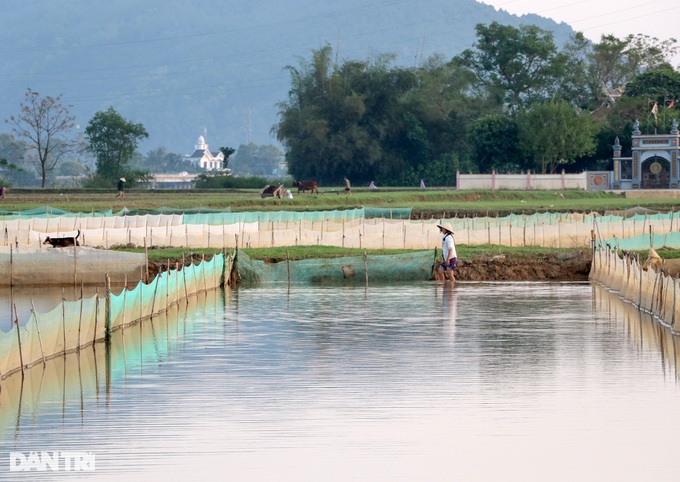
The mollusk season is usually from the end of August, the beginning of September of the lunar calendar, and lasts until November. It is “growing” according to the moon phase, twice a month, at the beginning and middle of the month. At the time of “growing”, the field is like in the festival season, flashing the lights of people to pick up “lucky”. There are lucky households who can earn 5-7 million VND per night.

The rut is considered “land fortune”, the fortune in anyone’s field, that person enjoys. The whole field is large, not all fields have worms. Despite the bad luck, every house is well prepared for the lucky season. Worms are fastidious species, so the field must be clean and well-plowed. Therefore, in the rice season, people here hardly use pesticides and herbicides to keep the soil clean.
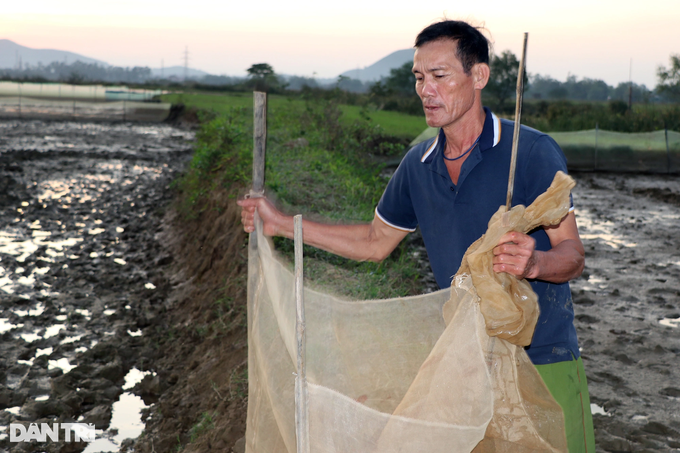
“Rice must be transplanted very sparsely, fertilized with nitrogen, phosphorus, and potassium fertilizers to make the stem hard and resistant to diseases. When the rice is harvested, it must be plowed and harrowed very finely, fertilized with well-composted manure to prepare food. I don’t know if it’s right or wrong, but my father passed it on, the fertilized fields will raise fat, yield and quality,” said Mr. Vo Dinh Lan (Phu Xuan hamlet, Chau Nhan commune).
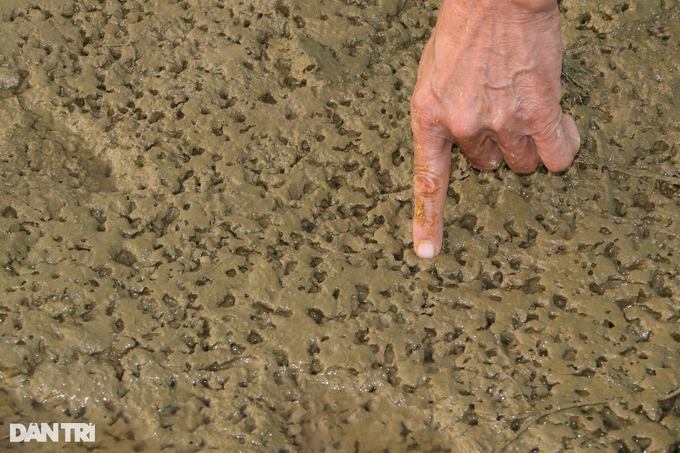
Mr. Lan has more than 6 sao of field, but only 2 sao has rue. From the end of August and the beginning of September of the lunar calendar, this 70-year-old farmer brought bamboo poles and nets to the fence around the field, used mud to cover the bottom of the net, ready to wait for the worms to “grow”.
If in previous years, around the end of August in the lunar calendar, the worms “grow”, but now that October has passed, the ruts have not appeared. Mr. Lan, as well as hundreds of households here, are waiting with red eyes, because this is the main source of income of the people during this period, the efficiency is many times higher than that of rice cultivation, although the price is often not stable. determined.
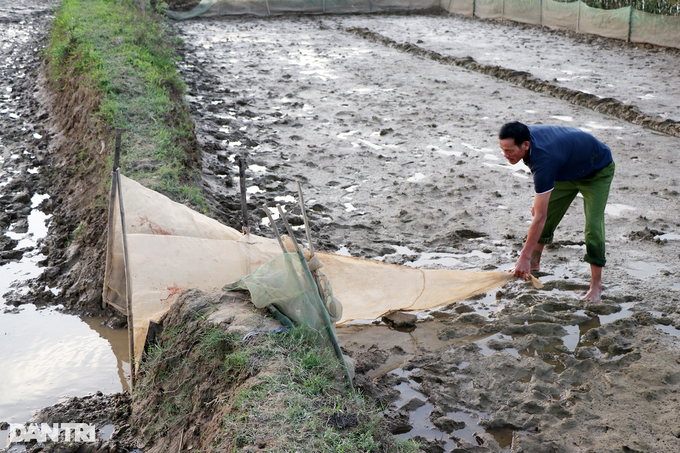
Mr. Vo Van Que (Phu Xuan hamlet) has an acre of two Clam Worm fields, of which 2 Sao is the land of the mouth (the land is divided among the people), and the rest is the commune’s bidding field.
“Last year, there was a night when my husband and I collected quintals of weeds. The field was fenced with nets. When the river water rose, it started to have worms. When the water receded, it was time to “grow”. I make one for each field.” swarm” ( deep water hole dug at the end of the field – PV ), all the water crept into the net following the flow of water. Just “collect” each time, collect the net and pour it into the barrel”, Mr. Que has just closed the net to “collect”, just shared.
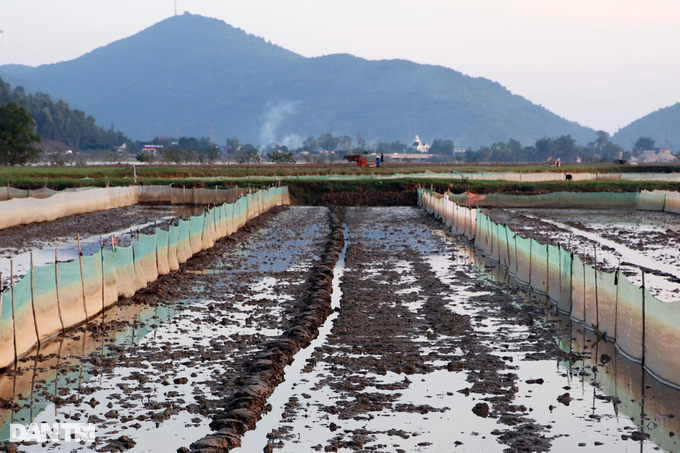
This year, an acre of two fields of Mr. Que only harvested more than 1kg. This early season’s specialty, he boiled thoroughly, processed it into a dish of fried bamboo shoots to treat guests from afar.
Walking around the field, Mr. Que pointed to the small holes covered in the ground and explained: “This is the “that” of the worms. When the water enters, the worms come out of these holes. Looking at the field like this, the possibility is about to come. there are worms that “grow” and grow a lot”.
However, most of Mr. Que’s rice fields are still without water, while the fields inside the water are about a hand full. By his experience, Mr. Que forecasted that around the 15-16 October of this lunar calendar, the rut would “grow”.
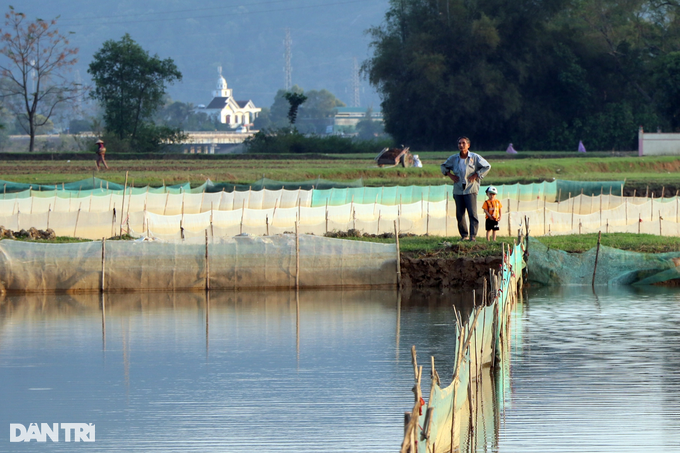
“Ruby is a completely natural breed, can’t be raised, so “eating” or “losing” will have to wait for the sky. In recent years, I don’t understand if it’s because of the polluted environment or water source, but the yield is not as good. In the past, to be honest, people here only grow rice to eat, the whole year looks forward to the harvest season. This year, the harvest season has been delayed by nearly 2 months, if lucky, there are still about 2-3 times of “growing”. “It’s the end of the season,” Mr. Que calculated.
